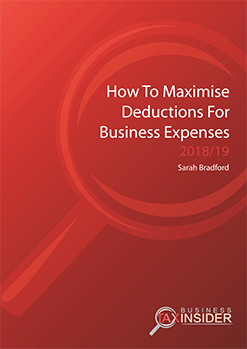When working out the profits or losses of your business, you can deduct any allowable expenses that you incur in running your business to arrive at the profit (or loss) figure before tax.
There is a lot of confusion as to what can and cannot be deducted.
To ensure that you claim the maximum permissible deductions for business expenses, it is important that you:
- understand the rules as to what can be deducted;
- appreciate what expenses are not allowable, and why;
- understand when relief is given; and
- keep good records so that you know what business expenses you have incurred.
Wholly And Exclusively’ Rule
The Basic Rule
The basic rule is that a deduction is allowed for expenses incurred wholly and exclusively for the purpose of the trade. The rule works by prohibiting expenses that are not wholly and exclusively so incurred, stating:
‘In calculating the profits of a trade, no deduction is allowed for –
expenses not incurred wholly and exclusively for the purposes of the trade…’.
Unlike the equivalent rule for employment expenses, there is no requirement that the expense is ‘necessarily’ incurred. This means that as long as an expense is incurred for the purposes of the business and only for that purpose, a deduction is given. There is no requirement that it is necessary to incur the expense for it to be deductible.
No Deduction For Private Expenditure
To qualify for a deduction from trading profits, the ‘trade purpose’ must be the sole purpose of the expenses. Private expenditure is not incurred ‘for the purposes of the trade’, and as such it fails the deductibility test. No deduction is given for private expenditure and under no circumstances should private items be `put through the business’.
It is important to appreciate that the existence of a non-trade or private purpose will preclude the deduction in full if there is no ‘objective yardstick’ by which the trade element can be distinguished from the non-trade element. By contrast, if it is possible to separately identify the trade and non-trade elements, a deduction may be permitted for the trade portion (see section 2.3).
Example – Non-deductibility of Personal Expenses
Hattie is a sole trader. She meets her friend Helena for lunch and pays for the lunch with her business debit card. The expense is a private expense, not a business expense, and cannot be deducted in working out the taxable profits of the business.
It is not always easy to keep business and private expenditure separate, particularly if the business is small and run from home, and it can be very easy when, say, picking up some pens and paper for the office to buy a magazine and some chocolate at the same time, and to pay for it together and to claim a deduction for the whole lot. This should not be done and may attract unwanted attention from HMRC.
Practical Tip
It is good practice to keep private and business expenditure separate and to have a separate bank account for business expenses.
Mixed Use Expenses And Apportionment
Sometimes expenses will be incurred for both business and private purposes. The legislation provides that:
‘If an expense is incurred for more than one purpose, this section does not prohibit a deduction for any identifiable part, or identifiable portion of the expense which is incurred wholly and exclusively for the purposes of the trade’.
The key to whether any deduction can be claimed where an expense is incurred for both private and business purposes is whether it is possible to identify the trade portion.
The fact that a deduction is not permitted for private expenditure does not preclude a deduction for the business portion. Where an expense has a business and private element, the expense should be apportioned, and a deduction claimed for the business portion. The apportionment should be done on a just and reasonable basis.
 This is a sample extract from the report 'How To Maximise Deductions For Business Expenses 2018/19' published by TaxInsider.co.uk.
This is a sample extract from the report 'How To Maximise Deductions For Business Expenses 2018/19' published by TaxInsider.co.uk.


Please register or log in to add comments.
There are not comments added